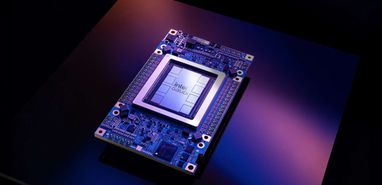
Intel has unveiled the pricing for their next-generation Gaudi 3 AI accelerators, making them significantly more competitive against rivals.
Intel’s Gaudi 3 Accelerators Pricing Could Attract AI Industry, Especially Chinese Customers
Currently, Intel, compared to the big three firms (NVIDIA, AMD, and Intel), holds the smallest market share in the AI industry. However, the company is aiming to change this dynamic soon.
During a recent keynote, Intel’s CEO Pat Gelsinger provided updates on their AI advancements, including details about their newest Gaudi AI accelerators. For the first time, the company disclosed the pricing of its Gaudi 3 AI accelerators, highlighting their value proposition.
According to the presentation slides, Intel’s Gaudi 3 AI accelerator kit, consisting of eight units, will be priced around $125,000, bringing the cost of an individual Gaudi 3 AI accelerator to approximately $15,625. In comparison, the previous generation Gaudi 2 AI accelerator is priced at around $8,125.

These prices are significantly lower than those of competitors like NVIDIA, where a single Blackwell B100 AI GPU is expected to cost around $35,000, more than double the price of Intel’s top-end accelerator. With the high demand for NVIDIA’s Blackwell, prices are likely to rise even further.
While Intel may have a pricing advantage over NVIDIA, it’s important to note that consumers aren’t just paying for raw power. NVIDIA’s AI ecosystem, which includes specialized CUDA libraries, Grace CPUs, and other critical resources, is a significant factor in its widespread market adoption.
When comparing market competitors, there aren’t many with a similar offering. Intel can still challenge NVIDIA through continuous improvements, but currently, the market favors NVIDIA.
Like NVIDIA, Intel is building a comprehensive ecosystem around their Gaudi 3 AI accelerators, offering various configurations starting with 8 accelerators and scaling up to 512, 4096, and even 8192 super-clusters with 15 Exaflops of performance, 1 PB capacities, and an impressive 1.229 PB/s bandwidth.

Intel’s potential success could lie in the Chinese market. The company has recently reiterated its commitment to Chinese markets, emphasizing that they remain a key player. With their unique relationship with the US government and the competitive pricing of Gaudi accelerators, Intel could potentially challenge NVIDIA’s dominance in China, though this remains speculative for now.








By Andrej Kovacevic
Updated on 14th July 2024